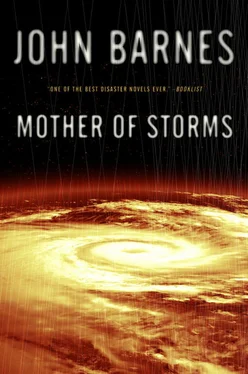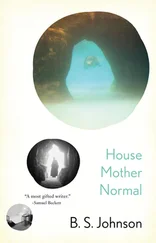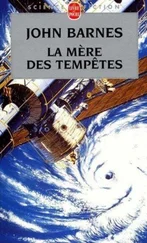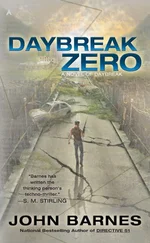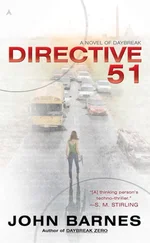Father Joseph urged people to accept evacuation, but since the church rode it out once, they are convinced it must again. It’s strangely familiar in here, the same people, candlelight, the same odors—but the wind is rising fast. He wonders if the building will go over in a hurricane.
The thing that troubles him most is that he could not bring himself to tell them that he didn’t believe it was a miracle before, finally, but merely luck. Plenty of other churches must have drowned.
He wonders what he has to say to them. The water has been running out, not in, at the mouth of the Shannon, and the wireless is saying the giant hurricane that has wrecked the States is headed here. He has cousins in Boston, and he hasn’t heard a word…. They say most rivers have risen enough to drown their cities there, and that Florida is gone….
There is a deep rumble like an oncoming train, and people huddle together. Father Joseph barely has time to say “Let us pray” before, as abruptly as a foot descending on a cockroach, the storm surge—twice as high as any mountain in Ireland—slams church, congregation, and all into oblivion. Moving at hundreds of miles per hour, the surge washes clear across the island; within hours it will penetrate Britain so deeply that a torrent twenty miles wide will flow up the Mersey and down through the Trent, tear a great open bay into the face of Europe where the Zuider Zee once stood, and still have force enough to flood St. Petersburg to a depth of ten meters.
Nodes collapse and packets are rerouted in the global data system; much like their namesakes, datarodents flee the places that are drowning, and copy themselves endlessly through what remains, up through satellites and down through fibrop. They begin to find each other, to merge, to seek more of their kind—there are moments of recognition, and then, because more data must be assembled to find out what they are to do, they join up and seek together….
Carla Tynan wakes up reaching for the jack in her head. She really needs to get off the net for a while, she’s feeling badly disoriented… more memories and processors come online, and in a millisecond or so she feels more like herself, but still she needs food and exercise, she’s been on a long time—
She remembers, and begins to scream. She reaches for her body, over and over, thousands of times per second, but she can’t find it. She reaches for knowledge about herself, and she finds the reports of the Honiara Police, the pictures of her bloody, cratered body on the hotel room bed.
What Louie chose to do has been forced on her. She reaches for him, through the antennas—he is now less than two light-hours away. But at the speeds with which she lives in the net, she will endure centuries before she is able to hear his comforting voice, and to cry in the awareness of his affection.
On September 22, as Clem reaches with an outflow jet into the Bay of Campeche and stirs up the eye of a new storm, Louie Tynan crosses Saturn’s orbit. The catastrophe sweeping over the Earth is beyond his power to do anything about; Louie-on-the-moon is now pouring data to him, TV, XV feed, everything. He is everywhere and all these things are happening to him.
With his knowledge of all of human history, he is appalled but not shocked. His own estimate is that a billion people will die next week.
He is still moving at almost five astronomical units per day, and he is now only nine and a half AU from the sun itself. The fastest way to get there, he assures himself again and again, is to overshoot and brake, using the sun to make the turn, then Mercury and Venus and the sun’s gravity behind him to slow him down.
But he keeps rechecking.
He wonders why he feels so strong an attachment to the Earth he left. He certainly wasn’t all that eager to have his feet on it while he had feet. He never did like people much, for that matter. And yet here he is, frantic to go to their rescue.
Maybe it’s just in the nature of a pattern-making system to want to preserve the original. It’s something to think about, anyway, while he throws the plasma stream out in front of himself, checks the strains and accelerations, and just hopes the whole thing will hold together. It occurs to him that he’s cut the margins close, and despite the speed of his reactions and the volume of data that he processes, he might turn out to be wrong.
“Wrong” in this case is what would happen if 2026RU broke up under the strains it’s being subjected to. If that happened, a few pieces, carrying various of Louie’s processors with them, would dive into the sun, a situation which is about as close to a snowball in hell as reality ever gets, and the other chunks would continue, after close passes at the sun, on hyperbolic orbits right out of the solar system and into eternity; after a few tens of thousands of years, a few of them might enter some other star system, but most would end up permanently in the dark between the stars on the fringes of the galaxy.
Louie’s guess is that two or three of the biggest chunks might still have enough of him on them to remain conscious, and enough replicators to start re-engineering themselves a way back… probably some of him would get back to the solar system in another hundred years or so. Always assuming the conscious chunks weren’t the ones that plunged into the sun, and Louie’s sense of the universe, as a man who was first trained as a pilot, is that the one law that holds absolutely is Murphy’s. Louie-on-the-moon and the wiseguys could doubtless grab another cometoid—with what they’ve learned they could grab Pluto and Charon if need be—but it would be some months’ delay, and, he repeats to himself, uselessly but every millisecond, Earth doesn’t have the time.
He keeps doing his job but he also keeps rechecking his figures. To amuse himself on the side, he re-reads the Aeneid and does a statistical study… is there really any empirical basis for Murphy’s Law? Throw out most of the battles in history, since bad luck on one side is good on the other. Throw out every election, ditto. Throw out various aboriginal people getting discovered, since it was seldom good luck for them. Look at efforts to fulfill the Weak Pareto Condition—the moral principle that Wilfredo Pareto identified in his economic and political studies, that a thing that benefits everyone and harms no one ought to be done.
Hmm. Define “everyone” and “no one.” Does everyone include apes and dolphins, some of whom are smarter than severely retarded human beings? Or dogs, many of whom have more empathy than most human beings, or cats, who practice more courtesy?
And as for harming no one… what is the horse’s point of view on domestication?
Rocks and ice don’t have much viewpoint, though. So since what Louie is up to is going to turn the solar system into a much better place for life—which is capable of having a viewpoint… if this works he may be the biggest breach in Murphy’s Law there’s ever been, and certainly he is binding more information and energy in meaningful patterns. Just possibly Louie is humanity’s biggest and most solid blow against entropy.
Which is not all that different from saying he’s out to overthrow Murphy’s Law. (With diligent effort, he has established that there is no statistical basis for Murphy’s Law. He has also established that he believes in it anyway.) He just hopes Murphy hasn’t heard about this. Murphy is known to be vindictive.
As he approaches the orbit of Mars on September 25, he tunes in to all the XV broadcasts he can find, relayed from Louie-on-the-moon, via two wiseguys, to him. He admits it’s vanity; he’s enjoying being seen from the Southern Hemisphere at sunset, as a huge comet with one bright sharpedged linear tail stabbing toward the sun, and another long feathery one—surface evaporation and coolant venting—reaching back away, so that in the evening sky he seems to stretch across more than half of it.
Читать дальше
